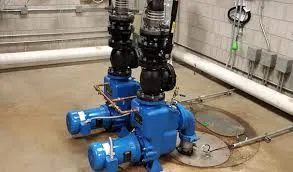English
- Afrikaans
- Albanian
- Amharic
- Arabic
- Armenian
- Azerbaijani
- Basque
- Belarusian
- Bengali
- Bosnian
- Bulgarian
- Catalan
- Cebuano
- Corsican
- Croatian
- Czech
- Danish
- Dutch
- English
- Esperanto
- Estonian
- Finnish
- French
- Frisian
- Galician
- Georgian
- German
- Greek
- Gujarati
- Haitian Creole
- hausa
- hawaiian
- Hebrew
- Hindi
- Miao
- Hungarian
- Icelandic
- igbo
- Indonesian
- irish
- Italian
- Japanese
- Javanese
- Kannada
- kazakh
- Khmer
- Rwandese
- Korean
- Kurdish
- Kyrgyz
- Lao
- Latin
- Latvian
- Lithuanian
- Luxembourgish
- Macedonian
- Malgashi
- Malay
- Malayalam
- Maltese
- Maori
- Marathi
- Mongolian
- Myanmar
- Nepali
- Norwegian
- Norwegian
- Occitan
- Pashto
- Persian
- Polish
- Portuguese
- Punjabi
- Romanian
- Russian
- Samoan
- Scottish Gaelic
- Serbian
- Sesotho
- Shona
- Sindhi
- Sinhala
- Slovak
- Slovenian
- Somali
- Spanish
- Sundanese
- Swahili
- Swedish
- Tagalog
- Tajik
- Tamil
- Tatar
- Telugu
- Thai
- Turkish
- Turkmen
- Ukrainian
- Urdu
- Uighur
- Uzbek
- Vietnamese
- Welsh
- Bantu
- Yiddish
- Yoruba
- Zulu
Telephone: +86 13120555503
Email: frank@cypump.com
Nov . 09, 2024 06:40 Back to list
Durable Transfer Pump for Chemical Resistance and Efficient Fluid Handling Solutions
The Importance of Chemical Resistant Transfer Pumps in Industrial Applications
In various industrial sectors, the efficient movement of liquids is vital for maintaining operations. One of the most critical components in ensuring safe and effective liquid transfer is the chemical resistant transfer pump. These pumps are designed specifically to handle a wide array of aggressive chemicals without compromising their integrity or performance. As industries increasingly focus on safety and efficiency, understanding the significance of chemical resistant transfer pumps becomes paramount.
Understanding Chemical Resistant Transfer Pumps
Chemical resistant transfer pumps are engineered to transport fluids that may contain corrosive, toxic, or otherwise hazardous substances. Unlike standard pumps, which are made from materials that may degrade or become compromised when exposed to harsh chemicals, chemical resistant pumps utilize specialized materials like stainless steel, polypropylene, or Teflon. These materials are selected for their outstanding resistance to corrosion and their ability to withstand the challenging environments typically found in industries such as chemical manufacturing, pharmaceuticals, and wastewater management.
Applications in Various Industries
The utilization of chemical resistant transfer pumps is widespread across multiple industries. In the chemical manufacturing sector, these pumps are crucial for transferring acids, bases, and solvents. Their ability to handle intense chemical interactions ensures that production processes run smoothly while minimizing the risk of leaks or spills, which could lead to environmental hazards or worker injury.
The pharmaceutical industry also relies heavily on chemical resistant pumps for the manufacturing of drugs and vaccines. The sterile environment required in pharmaceutical production necessitates that every piece of equipment, including pumps, minimizes the risk of contamination. The use of chemical resistant materials not only protects the quality of the substances being handled but also safeguards workers and the surrounding environment.
In wastewater treatment facilities, chemical resistant transfer pumps play a vital role in moving various sludge and chemicals involved in the treatment process. These pumps must withstand the harsh chemicals used to treat wastewater while being capable of handling solids without clogging or becoming damaged. The reliability of these pumps is essential for keeping treatment operations efficient and compliant with environmental regulations.
chemical resistant transfer pump

Safety and Compliance Regulations
Due to the nature of the chemicals being handled, safety is a critical consideration in the design and operation of chemical resistant transfer pumps. The Occupational Safety and Health Administration (OSHA) and the Environmental Protection Agency (EPA) have established guidelines that industrial facilities must follow to ensure safe operations. Compliance with these regulations not only protects employees but also helps organizations avoid hefty fines and legal repercussions.
Furthermore, the proper maintenance and regular inspection of chemical resistant transfer pumps are necessary to ensure they remain in optimal condition. Facilities must adopt preventive maintenance practices to identify wear and tear before it leads to failures or safety hazards.
Benefits of Chemical Resistant Transfer Pumps
Investing in high-quality chemical resistant transfer pumps provides numerous benefits for industrial operations. First and foremost, they enhance safety by significantly reducing the likelihood of leaks and chemical exposure. They also promote operational efficiency, as these pumps are designed to handle the specific viscosities and flow rates of various chemicals, ensuring consistent performance.
Furthermore, the longevity of chemical resistant pumps means that maintenance and replacement costs can be reduced over time. By minimizing the risk of catastrophic failures, companies can avoid costly downtime, which translates to increased productivity and profitability.
Conclusion
In conclusion, chemical resistant transfer pumps are indispensable components in modern industrial processes. Their ability to handle corrosive and hazardous materials safely and effectively underscores their importance across various sectors. As industries continue to evolve, the reliance on advanced pump technology will only increase, reaffirming the significance of chemical resistant transfer pumps in ensuring safe and efficient liquid handling. As organizations prioritize worker safety and environmental compliance, the role of these pumps will remain crucial in driving operational success.
-
ISG Series Vertical Pipeline Pump - Chi Yuan Pumps Co., LTD.|Advanced Hydraulic Design&Energy-Efficient Solutions
NewsJul.30,2025
-
ISG Series Vertical Pipeline Pump - Chi Yuan Pumps Co., LTD.
NewsJul.30,2025
-
ISG Series Vertical Pipeline Pump - Chi Yuan Pumps Co., LTD.|energy-efficient fluid handling&industrial durability
NewsJul.30,2025
-
ISG Series Vertical Pipeline Pump - Chi Yuan Pumps | Advanced Engineering&Industrial Efficiency
NewsJul.30,2025
-
ISG Series Pipeline Pump - Chi Yuan Pumps | High Efficiency, Energy Saving
NewsJul.30,2025
-
ISG Series Vertical Pipeline Pump-Chi Yuan Pumps|High Efficiency&Reliable Performance
NewsJul.29,2025










